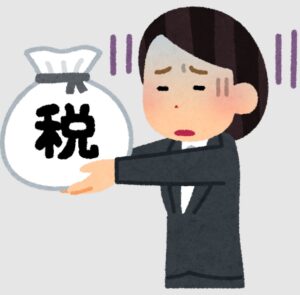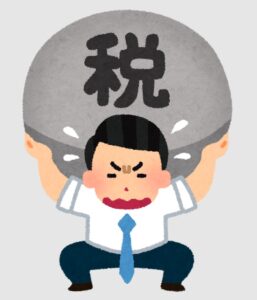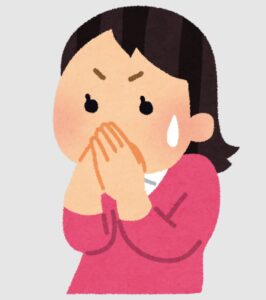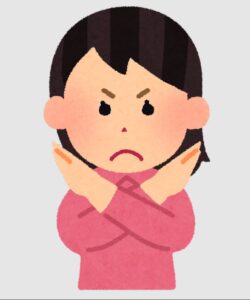管理人オススメコンテンツはこちら
「上手に使えばいいんです|安心のはずが人生クラッシャー!?保険契約の真実」
今日は【貯める力】
失敗したくない人必見!
保険契約に注意が必要な3つの理由
というお話しをします。
●保険で人生を守れる人、保険で人生を壊す人〜分けるのは“知識”だけ〜
知り合いが相談を受けたそうです。
「保険についてどう考えたらいいのか
わからなくて混乱してしまいます。
保険にはずっと
・安心
・堅実
・重要
というイメージを持っていました。
でもいつも
・ボッタクリ
・不必要
・払い過ぎ
という言葉で
説明されていますよね?
保険は悪いものなのでしょうか?
保険は契約しない方が
いいのでしょうか?」
とのこと。
私は保険そのものは
優れた仕組みだと思ってます。
全く悪いものではないので
上手に使えばいいんです。
ただ実際に
保険を契約する時には
本当に注意が必要なんですね。
実際保険とうまく
付き合えてないという人は
非常に多いんですよ。
多いというよりは
ほとんどの人が失敗している。
だから
いつも要注意だと
伝えてるんですね。
今回のお話では
(1)保険は本来どういう仕組みなのか?
(2)保険契約をする時に注意が必要なのはなぜか?
この2つの事を
お話ししていきたいと思います。
保険で失敗したくないという人は
是非最後まで読んでください。
すでに保険を契約されてるという方も
必ず学びが有ると思うので
最後まで読んでいただければと思います。
保険というのは
素晴らしい仕組みなんですよ。
保険の基本的な発想は
こんな感じなんですね。
たまにしか起きないけど
起きてしまったら
超ヤバい事に備える為に
みんなでお金を出し合って
たまたま運悪く超ヤバい事を
引き当ててしまった人に
お金をあげれば
みんな少しの負担で
安心して暮らしていけるよね?
という発想なんですよね。
30歳の夫が稼いでいて
専業主婦の妻と子供を
養ってるとしましょう。
30歳の男性の
死亡率というのは
0.055%なので
この夫が
すぐに死んでしまうという確率は
とても低いんですね。
でも
もし死んでしまったら
妻と子供は暮らしていけない。
何とか暮らしていくためには
子供が成人するまでの間
月に20万円必要だとする。
そうすると
20万円×12ヶ月×18年
という事で
4,320万円が必要
という事になるんですね。
同じような家庭が
1万世帯有るとしましょう。
死亡率が0.055%という事は
1万世帯のうち5〜6人が
亡くなってしまう
という事なんですね。
1万世帯全体では
4,320万円×6世帯
ほぼ2億6千万円が
必要になる。
1万世帯全体で
必要なお金は
2億6千万円で
だれが
不幸のギャンブルを
当ててしまうかは
わからないけど
全体で見た場合
2億6千万円必要ですよね?
1世帯あたり
年間2万6千円を負担すれば
1万世帯で2億6千万円集まる。
これでお金の意味では
いつ亡くなっても大丈夫だ
という事になります。
なので
みんなでお金を出し合って
安心して暮らそうという
保険のベースの考え方は
こんな感じで
非常に理にかなってるんですよね。
非常にいい考え方ですよね。
〜〜〜つづく〜〜〜
Special Thanks college president Ryo.
●おまけ
≪≪perplexityちゃんによる文章まとめ≫≫
保険は「人生を守る仕組み」であり、決して悪いものではありません。
少しの掛金を皆で出し合い、万一の出来事に遭った人を助けるという“相互扶助”の考え方に基づいています。
例えば30歳の夫が一家を支えている場合、死亡率はごく低いものの、万一亡くなれば残された家族には約4,300万円が必要となります。
個人では負担できなくても、1万世帯で分担すれば1世帯あたり年2万6千円の支出で安心を得られるのです。
保険の仕組み自体は非常に理にかなっており、適切に使えば安心を生む素晴らしい制度です。
ただし実際の契約時には注意が必要です。
仕組みを理解せずに加入すると、不要な保障や過剰な保険料で人生を圧迫してしまう人も少なくありません。
だからこそ、保険は「知識」が成功と失敗を分けるカギとなります。
- https://www.tokiomarine-nichido.co.jp/world/guide/study/sonpo_05.html
- https://www.fsa.go.jp/ordinary/hokenkeiyaku/index.html
- https://www.sonpo.or.jp/about/guideline/keiyaku_guideline/index.html
- https://www.fsa.go.jp/common/law/guide/ins/04.html
- https://www.tokiomarine-nichido.co.jp/world/guide/study/hoken_02.html
≪≪Chat-GPTくんによる英訳≫≫
Today’s topic is “The Power to Save”
For those who don’t want to fail:
3 Reasons Why You Need to Be Careful with Insurance Contracts
—
【People who can protect their lives with insurance, and people who can ruin their lives with insurance — the only difference is knowledge.】
A friend of mine was asked the following question:
> “I don’t know how I should think about insurance,
> and it’s all very confusing.
>
> I’ve always thought of insurance as
>
> Safe
> Reliable
> Important
>
> But I often hear people describe it as
>
> A rip-off
> Unnecessary
> Overpriced
>
> So, is insurance actually a bad thing?
> Should I avoid signing up for it altogether?”
—
My answer is this:
I believe insurance itself is an excellent system.
It is not bad at all — if you use it wisely, it can be very beneficial.
However, when it comes to actually signing a contract, you really need to be careful.
In reality, there are so many people who don’t handle insurance well.
In fact, rather than just “many,” I would say most people actually fail at it.
That’s why I always warn people to be cautious.
—
In today’s talk, I’ll cover two points:
1. What is insurance really designed to do?
2. Why do you need to be so careful when signing an insurance contract?
If you don’t want to make mistakes with insurance, make sure to read until the end.
Even if you already have insurance, I’m sure you’ll find something valuable to learn.
—
Insurance, at its core, is a brilliant system.
The basic concept goes like this:
Something bad doesn’t happen often,
but if it does happen, it can be devastating.
So, everyone puts in some money,
and if someone is unlucky enough to draw that “devastating event,”
they receive financial support.
That way, everyone can live peacefully, knowing
that a small contribution keeps them secure.
—
For example, imagine a 30-year-old husband who works to support his stay-at-home wife and their child.
The mortality rate for a 30-year-old man is 0.055%.
So, the chance of this husband dying soon is very low.
But if he were to die,
his wife and child wouldn’t be able to sustain their living expenses.
Let’s say they would need ¥200,000 per month until the child reaches adulthood.
That’s:
¥200,000 × 12 months × 18 years = ¥43.2 million.
—
Now, imagine 10,000 households in a similar situation.
With a mortality rate of 0.055%,
around 5–6 of those husbands would pass away.
So, across all 10,000 households,
the total money needed would be:
¥43.2 million × 6 households = about ¥260 million.
If every household contributes ¥26,000 per year,
then 10,000 households would collectively raise ¥260 million.
That way, financially, the families are covered no matter who passes away.
—
This is the fundamental idea of insurance:
everyone chips in so that everyone can live with peace of mind.
It’s a very rational — and wonderful — concept, isn’t it?
Special Thanks OpenAI and Perplexity AI, Inc








